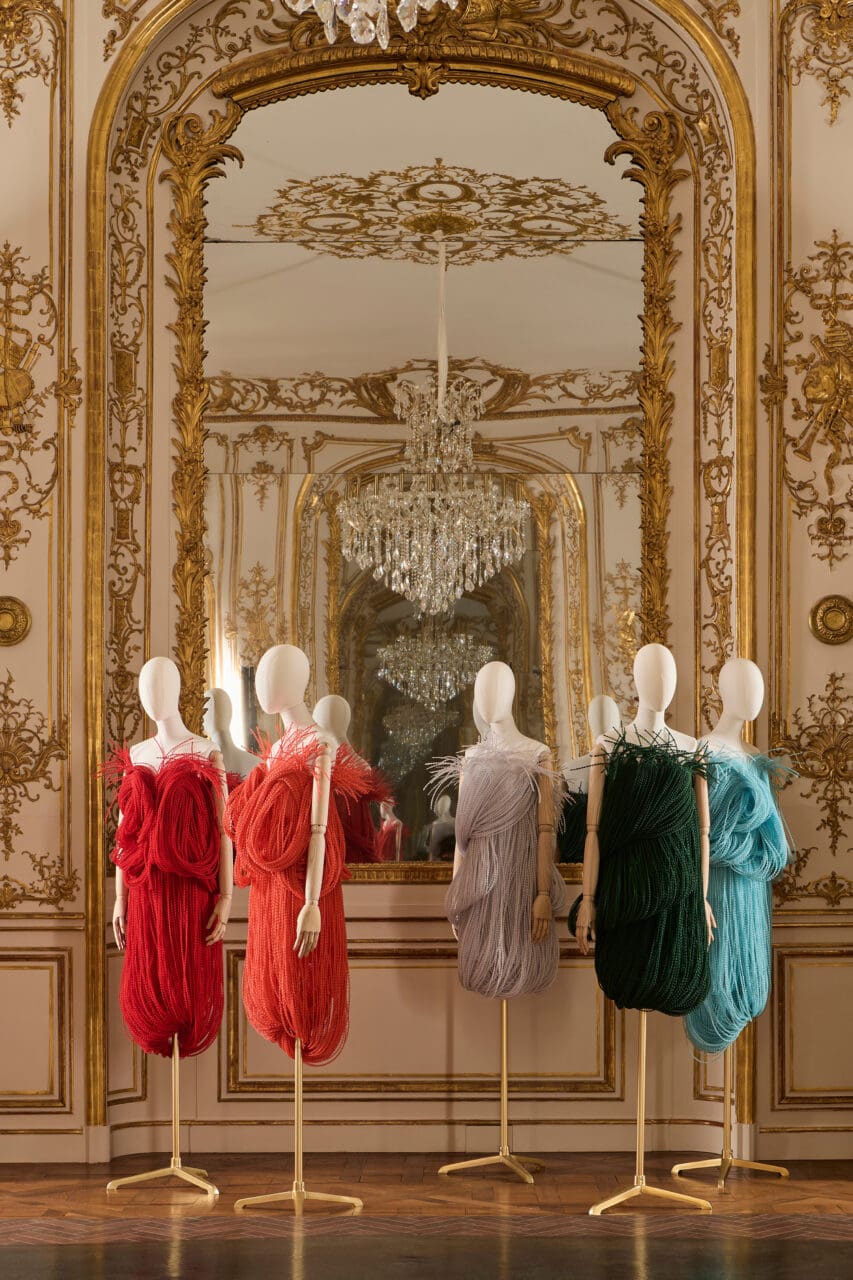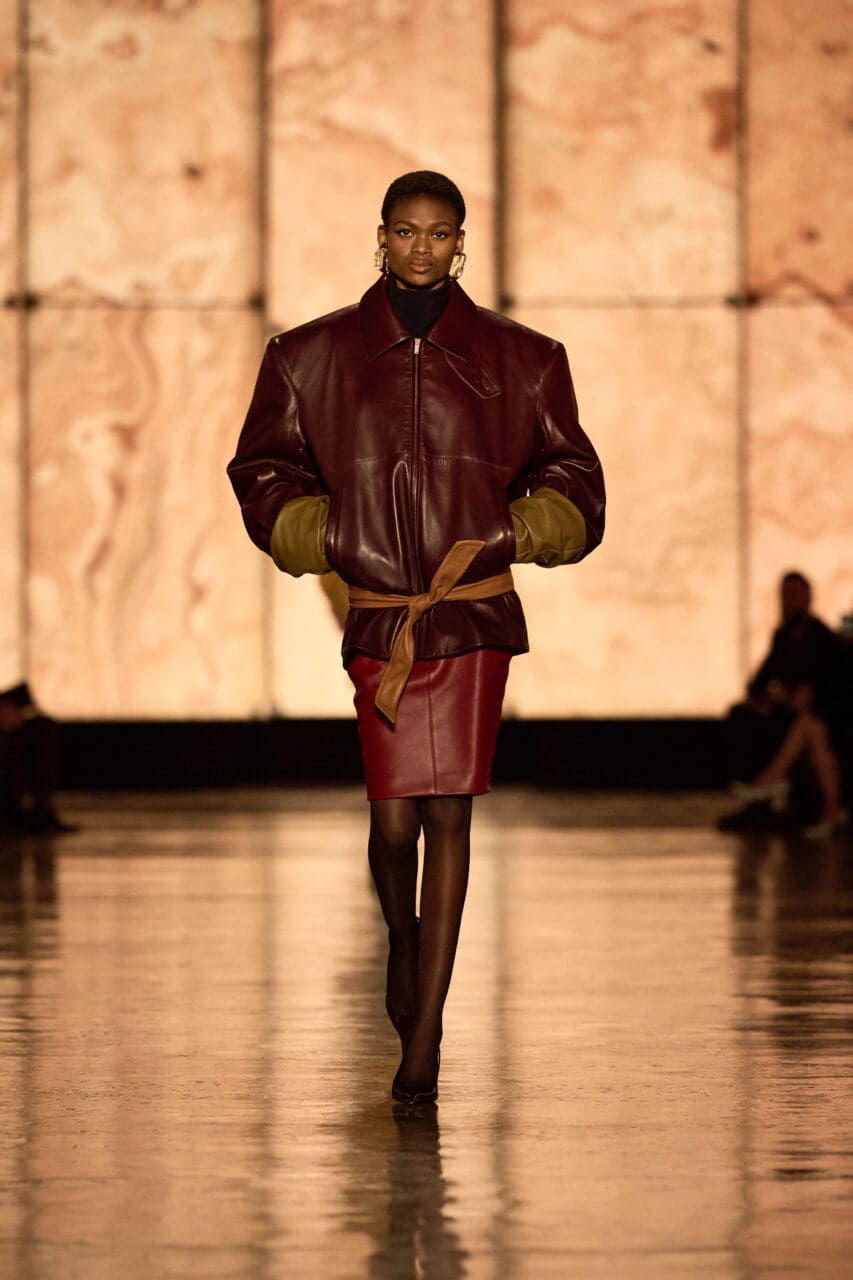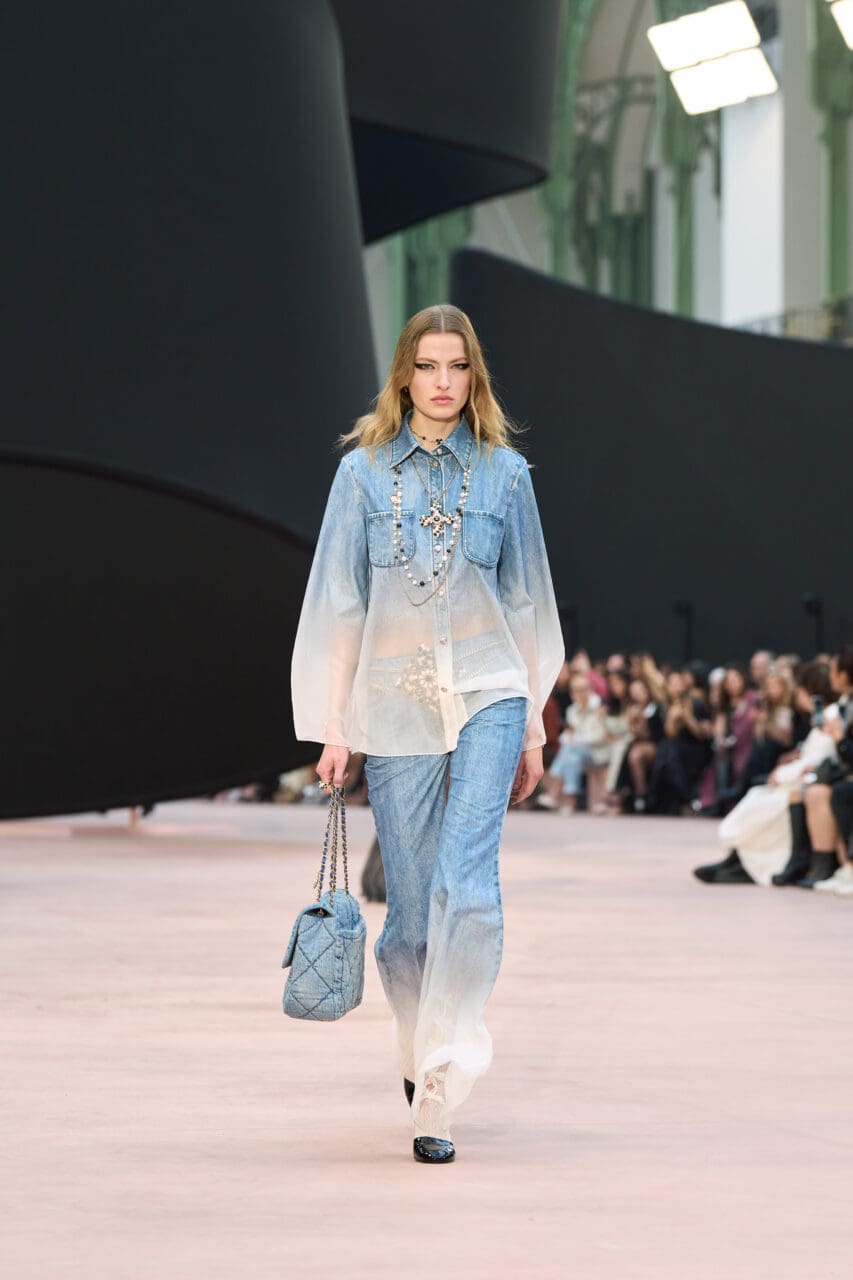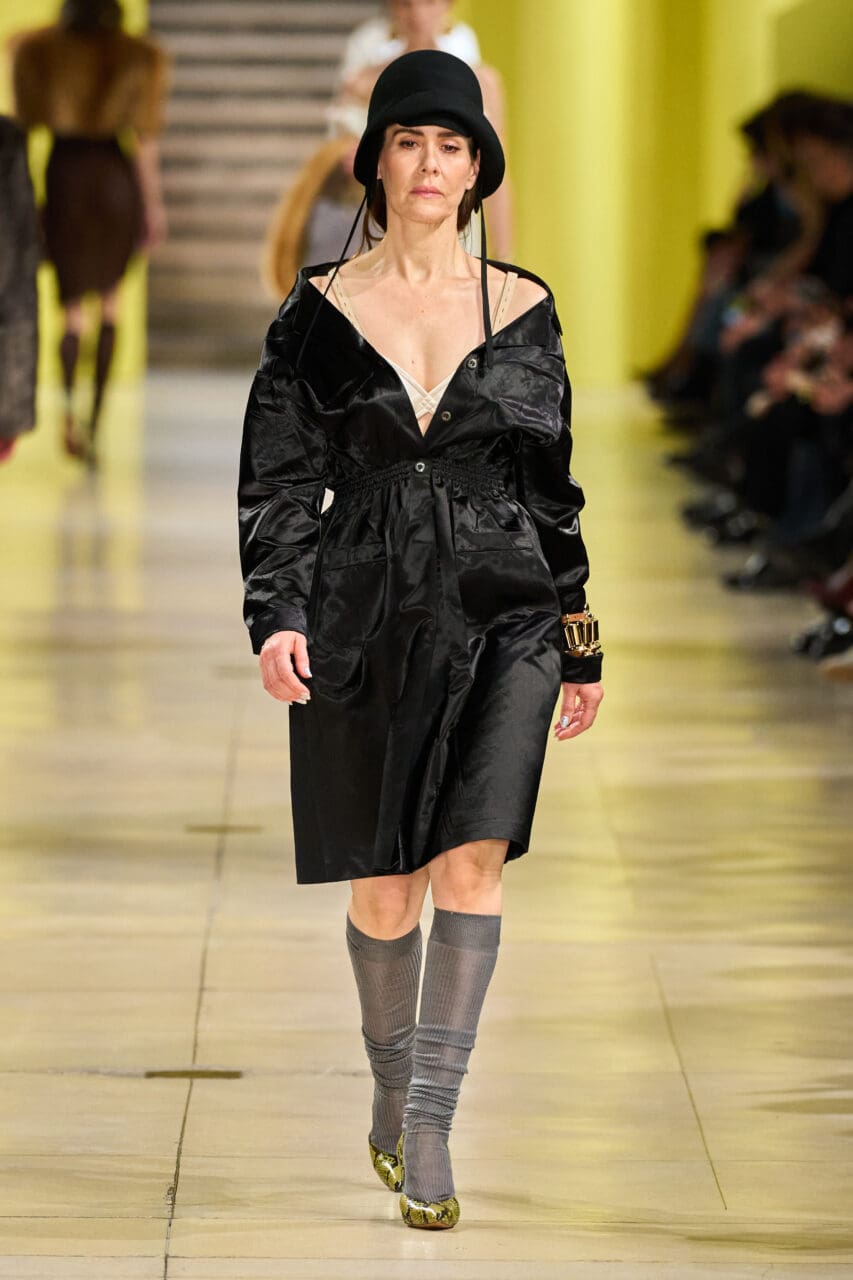When Pierpaolo Piccioli came home from work at the Valentino office in Rome recently, he was astonished to see that his 15-year-old daughter had raided his wardrobe for a night out with her friends. “She’d taken one of my black suits, white shirt, and black tie and was on her way out the front door. It was amazing to me, because she’d never seen me wearing a suit to the office. I keep some I wear with a bow tie to things like the Met Ball and other events, but never on a daily basis.”
He realized his cool kid had no idea about ascribing socially-conditioned ideas to the conventions of formal dressing. “It was just, she liked it, and it was a new thing to her. In the end, I think that’s the way to approach fashion, as a personal choice of freedom.” And he was off, with ideas aplenty, inspired to design his ‘Black Tie’ collection. (A side-reference: Harper Seven Beckham, aged 13, also surprised her parents by wanting to wear a tailored trouser suit to her mom’s show in Paris.)
Piccioli has been all-out to dress and impress today’s youth at Valentino for a good few seasons. The neo-punk tribe of people he sent stomping around the rooms of the Hotel Salomon Rothschild had face-jewelry, tattoos, and heavy boots, the better to demonstrate the individuality he wanted to spotlight amongst his reinterpretations and deconstructions of traditional formal attire.
Variety amongst the discipline of uniform tailored dress codes has emerged as a theme across the season. Piccioli added many twists on the theme, the consistency being in the proportions: lots of leg, miniscule pelmet-length dresses, skirts, shorts, and jumpsuits, mostly in black and white, amongst splashes of strong Valentino red.
Of course, it was Yves Saint Laurent who first broke the boundaries between women’s and menswear with his evening ‘Smoking’ suits in the 1960s. At the time, Valentino Garavani was focusing much more on creating a language of femininity which attracted conventional aristocrats, Hollywood actresses, and socialites. “I always think about what Valentino was about—it was about the idea of lifestyle, the perfect life, success,” Piccioli said. “I think, now what I’m doing is more switched to the idea of the lifestyle of community, our community, communities that are about the sort of gang of kids who are saying, look, we can wear the same sort of clothes, but giving them their personality with that.”
But if Piccioli’s modernizing of the Valentino remit is disruptive in one sense, in another, the wealth of techniques, skills, fabrics and trimmings he uses is thoroughly true to the house. Underneath the white-collar, black-tie concept peeked delicate frill-front blouses, ostrich feathers, sequined minis, 3-d roses, and a dress made entirely of a lattice-work of red bowties, amongst a collection that was also strong on classy, voluminous coats. Still, it was one long, unembellished silk shirt-dress, draped to one side at the hip that summed up the new Valentino spirit better than anything. It captured a mysterious blend of flou and cool, in a standout red.
Editor
Sarah MowerCredit
Lead image: Filippo Fior via Gorunway.com





